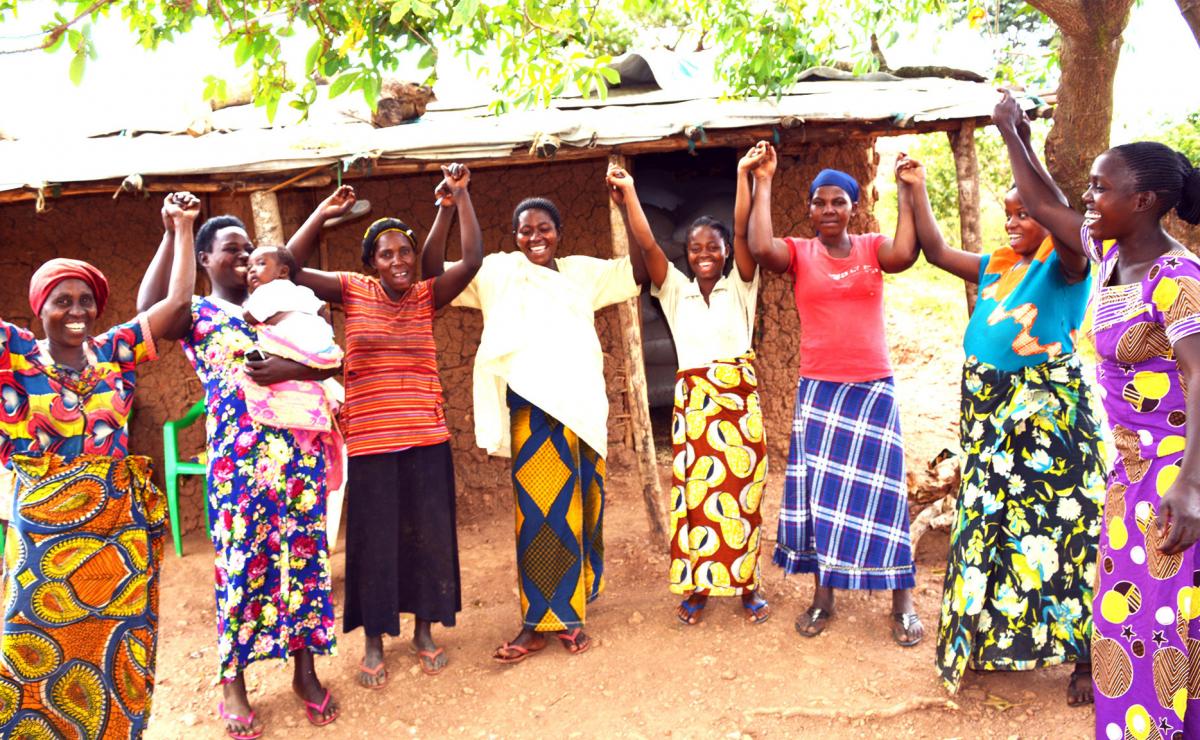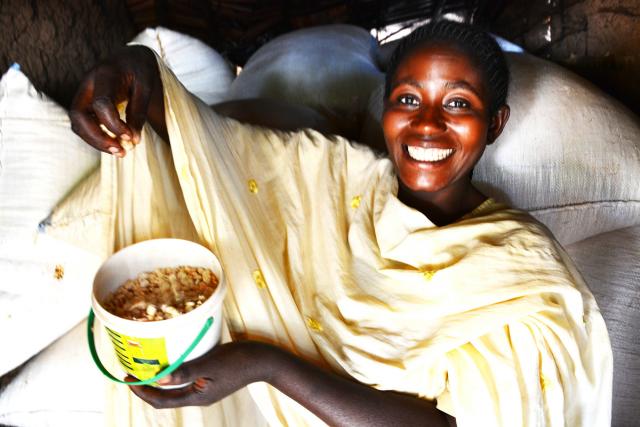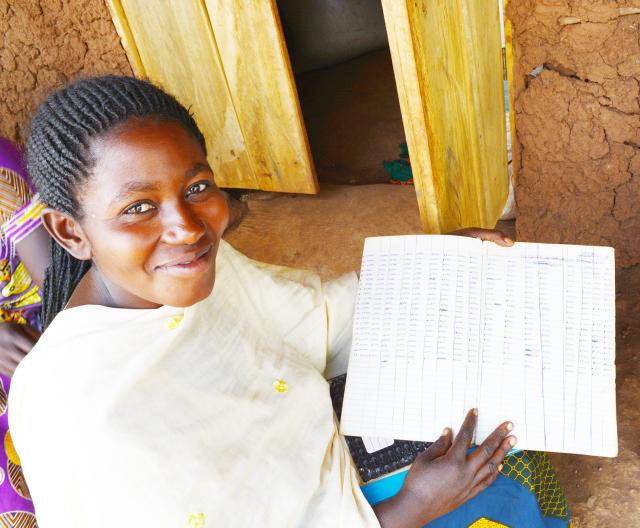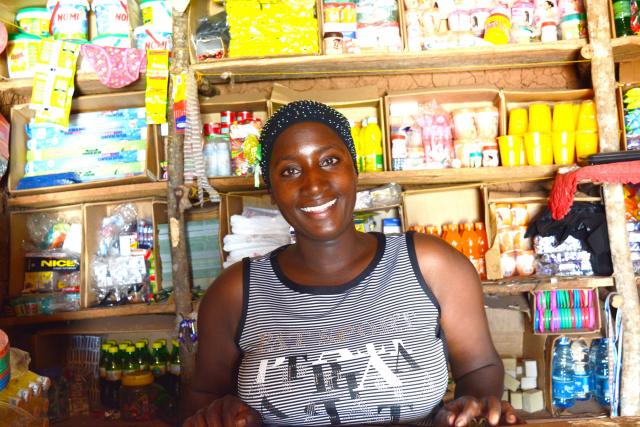Kashene business group uses produce to kick poverty out of homesteads

They deal in produce. Keshene business group of 25 women refugees in Rwamwanja settlement are buying maize grain and beans that they will sell for a living. The group buys produce at a lower price during wet seasons and expect to sell at higher prices in the dry season when food is scarce.
“We are buying maize at UGX 1,000 per kilogram and expect to sell it at UGX 2,000,” “We have stocked 30 sacks of maize grain and 3 of beans so far since August, 2017.” Said Sifa Rwahama the group Secretary who highlights that each sack weighs at least 150 kilograms.

The group ventured in the produce business in July, 2017 with a vision of being the major food suppliers in the settlement by 2019. “We want to buy produce from our fellow refugees and host community residents then sell it to the World Food Programme which supplies the food ratio to us,” explains Rwahama.
By doing so, the group believes they will have created market for the small scale farmers in the settlement who are cut short of engaging in commercial farming due to lack of resources. “This will improve people’s livelihoods in Rwamwanja,” Rwahama adds.
Kashene is one of the 20 business groups that were supported with business training and cash grants this year (2017) to venture in business by Lutheran World Federation (LWF) with funding from the EU Humanitarian Aid. “We received a cash grant worth UGX 10,000,000 (€2,333) after being tested in a business idea competition organised by LWF,” Rwahama explains.
“LWF organized a business idea competition and called for business proposals in Rwamwanja settlement,” explains Shyne Nyamate an ECHO Project Officer with LWF. “20 winning groups were selected, trained in enterprise specific skills and offered cash grants to implement their business plans.”

Kashene group establishes VSLA and businesses for its members
On acquiring a cash grant, the group established a village savings and loan association (VSLA) where it would keep its money as it continues to buy and sell produce.
“We get money from the VSLA whenever there is produce to buy. Members also save UGX 1500 per week and are allowed to take loans with an interest of 10% per month,” explained Rwahama.
With access to loans, the Kashene group is establishing a business for each of its members. “We decided to set up a sustainable business for each member worth UGX 250,000 (€58) and we have set up 3 so far,” Rwahama said.
She explains that the group aims at creating a sustainable income source for each of its members for better livelihoods and financial independence.

Hanifah Semugabu was the first group member to get a business, she chose a retail shop and that’s what Kashene group set up for her in Katalyeba village. “Life feels better than ever; I don’t struggle much to earn a living. All I have to do is stock my shop, then wait for the buyers to bring the money,” Semugabu speaks.
She continues to say that unlike before when she was always strapped, she can now afford her family’s basics like food to supplement the food ratio for a balanced diet, healthcare, good clothes and her children’s scholastic materials.
“I don’t have to sell my household items for money anymore because I use some of my business profits to meet my financial needs,” said Semugabu who earned an average of UGX 100,000 (€23) since her business was established in July, 2017.
Semugaba saves at least UGX 10,000 (€2.3) from her business profits and hopes to reinvest it in her retail shop with hope of growing it into a supermarket.

Saudah Bitumwa, a member of Kashene ventured in goat farming when it was her turn to get a business from the group. She acquired 7 goats which have multiplied to 10 within months.
“When my group mates asked what business I wished to have, I flagged goat rearing since I have always wanted to set up a goat farm, trade goats and also supply their products like meat and milk,” Bitumwa explained.
Kashene group also set up a kiosk for their Chairperson, Ibarande Nzabayo who now sells food stuff for a living.
While it monitors the 3 businesses, the group will also set up 22 more businesses for the rest of its members. “Facilitating refugees and host community residents set up income generating activities is a sustainable means of improving their livelihoods, self-reliance and food security,” Nyamate added.
LWF appreciates support from EU Humanitarian Aid towards its (LWF) humanitarian activities aimed at creating self-reliance and improving livelihoods among refugees and host community residents in Rwamwanja settlement.

